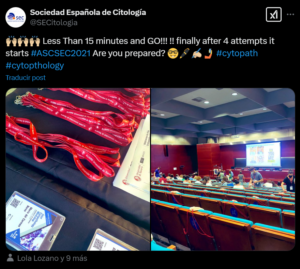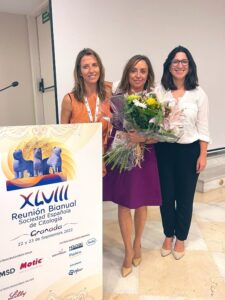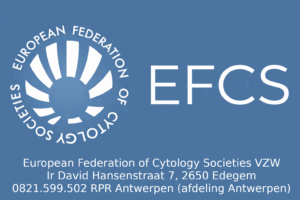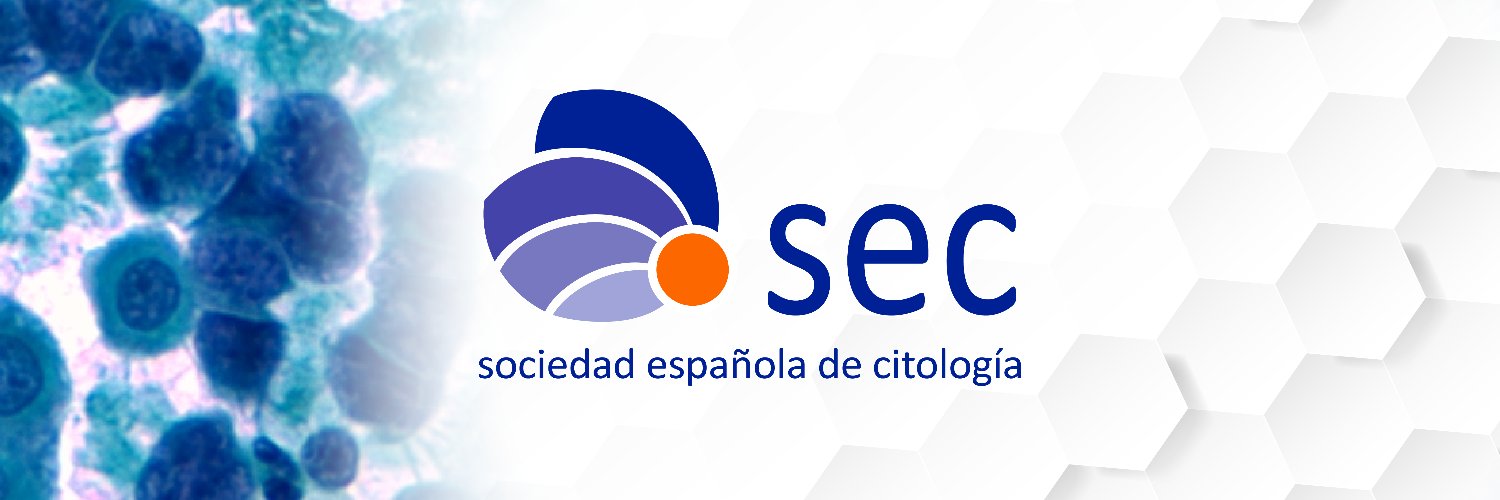Editorial Note: In our initial publication, we unintentionally failed to mention current president
Carme Dinarés and her contributions to the Spanish Society of Cytopathology. Please see the
extended article with an additional section acknowledging her role and achievements.
The Spanish Society of Cytopathology (Sociedad Española de Citopatología)
The Spanish Society of Cytopathology (Sociedad Española de Citopatología, or SEC) is
an organization dedicated to studying, practicing, and advancing cytopathology in
Spain. The SEC plays a vital role in ensuring high standards of practice and focuses
primarily on fostering professional development and promoting research in the area of
cytopathology. Furthermore, it creates a network among cytology practitioners that
allows better case consultation, training and guidance from renowned mentors.
The SEC was officially founded in 1988 with the purpose of fulfilling the need for a
formal organization that could represent professionals working in the field of
cytopathology. Before the formation of SEC, Spanish cytopathologists worked in a
fragmented manner. Since then, the increasing importance of cytological techniques in
diagnostic medicine, the need for a specialized organization became more apparent
and the society has tried to meet the demands of its members. Since its inception, the
society has played an instrumental role in advancing cytopathology as a discipline,
supporting its members, and improving diagnostic practices in Spain. Furthermore, SEC
is an active member of several international organizations, such as the European
Society of Cytopathology (ESC) and the International Academy of Cytology (IAC). These
collaborations allow the SEC to contribute to and benefit from global initiatives in the
field.
Membership of the Spanish Society of Cytopathology consists of professionals working
in the field of cytopathology, including pathologists, cytotechnologists, laboratory
technicians, and researchers. Membership is open to individuals working in Spain and
internationally. Members benefit from various services and opportunities offered by
the SEC. These include access to professional development programs, scientific
meetings, and an array of educational resources.
The SEC organizes a national scientific meeting every other year. In addition, the SEC
offers its members interactive courses throughout the year. Such as monthly lectures
given on crucial topics and aimed at pathologists, oncologists, molecular biologists and
cytotechnicians; or offering monthly challenging cases.
The governance of the Spanish Society of Cytopathology is managed by an elected
board, which is responsible for overseeing the organization’s operations, setting its
priorities, and guiding the society’s activities. The board includes a president, vice
president, secretary, treasurer, and one representative from the society. These
positions are elected for two years, with the former president playing a crucial role as
an advisor to the new board. In this way, society can maintain a certain continuity thatenables long-term planning, from which all members benefit. On the other hand, since
Spain is a large country, a regional representative is appointed for each region to
ensure closer proximity to the board and its members.
For the past two years, the society has been led by Carme Dinarés. During her
presidency, the SEC organized its biennial congress in September 2024 in the city of
Gijón, Asturias. In addition to this congress, she has promoted two interactive courses.
The first, “Cito-Tour,” is a monthly lecture series where pathologists, oncologists,
molecular biologists, and cytotechnicians come together to discuss key aspects of
tumors and the role of cytopathology in diagnosis and treatment. The second, “What is
Your Cytological Interpretation?”, is an online course designed for pathologists,
cytopathologists, anatomical pathology technicians, and cytotechnologists. This course
presents a monthly case selected for its clinical relevance, diagnostic challenges, and
educational value where participants can refine their diagnostic skills and expand their
knowledge. She has also promoted international academic alliances with SLAC (Latin
American Society of Cytology). Furthermore, during her presidency, the SEC has been
accredited with the ISO 17043 standard. As a result of years of work of the different
boards chaired by doctors Charo Granados, Belen Lloveras and Lola Lozano, ENAC has
finally granted them accreditation (19/PPIO26) for the quality control of Q-Pap and
molecular Q-Pap. This is a very important achievement, which means that the SEC is
currently the only European scientific cytology society accredited to carry out
intercomparison exercises of adjusted cervical cancer screening programs. The SEC
believes that this achievement will undoubtedly contribute to improving the quality of
cervical cancer screening diagnoses, which is why it wants to offer all professionals this
quality control in order to improve our diagnosis in this field.
The society has amongst its members professionals with recognized international
presence. Such is the case of the former president, María D. Lozano, better known as
Lola by many. Her expertise in the field and worldwide recognition has enabled the SEC
to gain visibility nationally and internationally. Her presidency has allowed its members
to connect with some of the most prestigious cytopathologists across Europe, the
United States of America, and Latin America. Some examples of the visibility Dr. Lozano
gave to the SEC during her presidency could be the ASC-SEC course in Pamplona 2020
and a scientific reunion in Granada, Spain, in September 2022, with the participation of
Syed Z. Ali, Merce Jorda, Philippe Vielh, Peter B. Illei, and Paul E. Wakely, among others.
Her journey continues as she prepares to become the president of the Spanish Society
of Pathology (SEAP) and the Spanish division of the Internal Academy of Pathology. In
this role, she aims to replicate the successes of the SEC and strengthen the connections
between both organizations, emphasizing the importance of cytologic and surgical
pathology correlation for improved patient care.
To conclude, the Spanish Society of Cytopathology plays a central role in advancing
education, research, and clinical practice in this specialized field. Through its active
programs, educational initiatives, and collaborative efforts with international
organizations, the SEC ensures that its members remain at the forefront of diagnostic
advancements that benefit patients. Furthermore, in the coming years, with thecooperation between SEC and SEAP-IAP, cytopathology and surgical pathology in Spain
are set to work side by side to place patients at the center of all our efforts.
Ramón Robledano
EFCS Residents and Young Pathologists Committee





